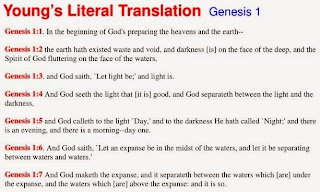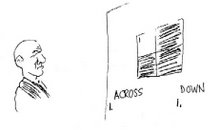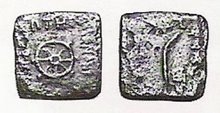Tuesday, March 3, 2015
Cognition, recognition...
With more than 30 percent of the Bible market, the NIV has loyal following. When translators introduced a language update of the NIV (the TNIV), ass-backwards "Americans sounded the alarm."
First, translations are - by no means - certain. A word-for-word translation has limited value because while languages change, the speakers of those languages recycle old words to fit new meaning (thereby erasing recognition - or cognitive equivalence). Translation of the cognitive equivalents (e.g. thought-for-thought) is -at best- a patchwork of approximations because no one today is certain just WHAT the ancients were thinking or to what they might have been alluding. Also, parallels (cypher) have been lost more often than not. Add that puns and wordplay were often employed by the pre-standup comic element of the genre [of scriptural writers].
Bible translation differences clearly point out how modern words are 'best estimate' selected to translate or illuminate the metaphor in the ancient scripture.
Let me add that the same word-for-word and thought-for-thought problem exists for Buddhist Scriptures (including the more recent - comparatively - writing of Dogen)! Furthermore, more recent examples are available.
The debate itself is informative of how little we know - or can know. It also explains the generation-to-generation language gap.
So, my advice to those who wish to endlessly argue over minutia: "Shut the f*ck up!"
Besides, it's not creation that is being described in Genesis 1, it is only a sunrise (over the Gulf of Aden to the east of Ethiopia)! The spirit (e.g. breath) of god was carried by a bird - the BA - fluttering over the ocean at dawn.
Subscribe to:
Comments (Atom)














